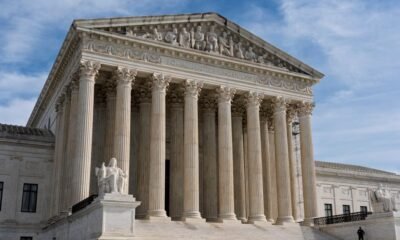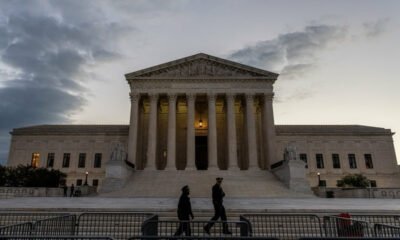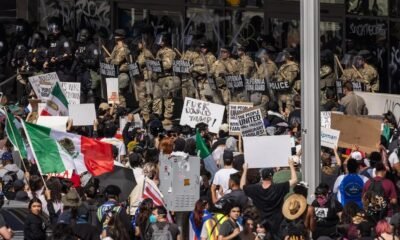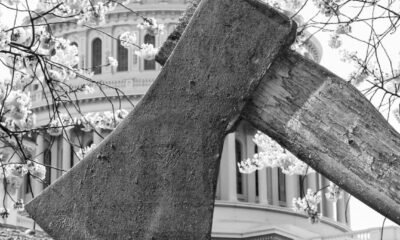2024 Election News
AZ Supreme Court Greenlights Vote Count for Prop 140

Arizonans are poised to vote on a significant electoral reform, namely the potential elimination of partisan primaries. This follows a ruling from the Arizona Supreme Court, which declined to block the counting of votes for and against Proposition 140.
As the measure is already included on ballots—prepared for printing by late August to facilitate early voting starting Wednesday—election officials proceeded despite ongoing legal challenges. Opponents of the initiative argue that numerous invalid signatures exist on the petitions that qualified it for the ballot, leading them to seek a court order to prevent vote counting.
However, Maricopa County Superior Court Judge Frank Moskowitz dismissed this request, citing multiple legal factors supporting his decision. This prompted the case to escalate to the state Supreme Court.
In a brief statement on Friday, Chief Justice Ann Scott Timmer affirmed Moskowitz’s ruling, although she did not specify which of the presented legal arguments influenced their decision. An official opinion detailing the court’s reasoning will be issued in the future.
If passed, Proposition 140 would abolish public funding for partisan primaries, instead instituting a nonpartisan primary system wherein all candidates compete regardless of party affiliation. This shift would allow all registered voters, irrespective of their political alignment, to participate, facilitating the advancement of the top two candidates to the general election.
Moreover, the proposal could allow the state Legislature to feature up to five candidates on the ballot, potentially incorporating a ranked-choice voting system. This method would enable voters to rank their preferences, possibly necessitating multiple rounds of counting to determine a winner who secures over 50% of the votes.
The ruling marks a setback for the Arizona Free Enterprise Club, which had sought to prevent the measure from proceeding. Their legal team argued that a significant number of signatures were duplicates, thus disqualifying the initiative due to insufficient valid signatures.
Judge Moskowitz noted that, with the ballot already printed, the issue became moot. His rejection of the challenge disappointed Scot Mussi, president of the Free Enterprise Club, who claimed the proponents were aware of the invalid signatures.
In stark contrast, Chuck Coughlin, who leads the Proposition 140 campaign, celebrated the decision. He stated simply, “We won.” Still, the Supreme Court’s specific reasoning for allowing the votes to be counted remains to be clarified.
Judge Moskowitz had prepared for challenges against his ruling concerning the validity of signatures. Although nearly 575,000 signatures were submitted, only 409,474 were initially deemed valid, a contradiction exploited by opponents who contended that a review revealed approximately 37,657 duplicates.
Despite their claims, Moskowitz concluded that discarding duplicates at this stage could constitute “double counting.” Moreover, he maintained that state law does not permit barring the counting of votes, regardless of signature disputes.
Secretary of State Adrian Fontes supported this stance, emphasizing that the timeline for resolving the validity challenge had lapsed. The recent campaign finance disclosures indicate that supporters of Proposition 140 have raised over $6.9 million, including substantial contributions from prominent figures.
Among donors, Robson Walton, former Walmart chairman, contributed $600,000, while David Tedesco and Robert Bertrand each donated $500,000. Saran Smallhouse, chair of the Make Elections Fair Committee, contributed $365,000 to the cause.
Interestingly, no financial disclosures from opponents have been reported to date, leaving a gap in the transparency surrounding this pivotal electoral issue.


















